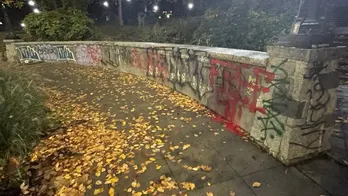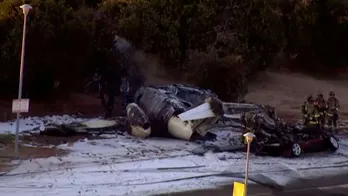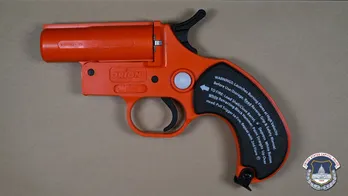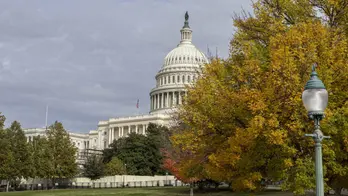Sports tribunal bans Russian Kamila Valieva from figure skating through 2025
Nearly two years after the 2022 Winter Olympics in Beijing, an international sports tribunal in Switzerland issued a final ruling on Monday that Russian figure skating phenom Kamila Valieva "committed an anti-doping rule violation."
The Court for Arbitration of Sport (CAS) ruled that Valieva will be suspended from international competition through December 2025.
"Trimetazidine was found to be present in the sample collected from Ms Valieva on 25 December 2021 during the Russian National Championships in St Petersburg," CAS said in a statement.
The outcome also "disqualifies" all competitions where Valieva medaled beginning in December 2021, including the 2022 Winter Games.
The move clears the way for the last medals from the Winter Games to finally be awarded, but leaves a black eye on one of the event's most popular competitions.
"Russia has hijacked every Olympic games since 2014," said Travis Tygart, head of the U.S. Anti-Doping Agency, a critic of Russia's well-documented sports doping system.
"I think you have to have a lot of sympathy. This is a 15-year-old girl who was part of this [Russian doping] program. Who do you blame?"
With Valieva now sidelined and her stunning performances disqualified, the International Skating Union is now expected determine who should receive which medals from Beijing's team skating competition.
Russia placed first in the team competition, followed by the United States and Japan. Canada finished fourth. The move should clear the way for the U.S. to receive the gold medal.
"The consequences linked to the retroactive disqualification of Ms. Valieva from past events, including from the Olympic Winter Games Beijing 2022, were not within the scope of this arbitration procedure and will have to be examined by the sports organizations concerned," CAS said in its ruling.
Tygart described this decision as a victory for clean sport and said he hoped it would lead to more aggressive enforcement of doping rules to rein in Russian wrong-doing.
"They're not compliant with the rules today. The system has failed athletes, including Valieva, continuing to allow [Russia] to hijack the world's largest events."
The case centered on Valieva, a star Russian figure skater, who was allowed to compete in Beijing even after it was revealed she had tested positive before the Games for using a banned performance-enhancing drug.
Dozens of other athletes around the world were caught up in the collateral damage from the scandal. While the case was under review, the International Olympic Committee decided not to award medals for the team figure skating competition.
"We were dressed in our ceremony gear, in a room waiting to to take a bus to the venue and we were told, this is canceled," recalled Zach Donohue, a member of the U.S. figure skating team, in an interview with NPR last year.
As the slow bureaucratic process inched forward with long delays between hearings, athletes from Canada, Japan, Russia and the U.S. waited to learn whether the Russian team would ultimately be disqualified.
There has been speculation that an awards ceremony for the figure skaters could be held at the Summer Games in Paris later this year.
Valieva affair puts spotlight on Russian sports controversies.
This case drew renewed attention to the long history of doping that experts say has corrupted athletic programs in Russia, skewing the results in international competitions and putting young competitors at risk.
This CAS ruling also came just days after the same sports tribunal heard Russia's appeal of a decision by the International Olympic Committee that blocked Russian athletes from competing on behalf of their country at the 2024 Summer Games in Paris.
Russians are expected to be allowed to compete, but only as neutral athletes, without flying the national flag, playing their country's anthem, or wearing official Russian sports uniforms.
The IOC issued the restrictions after Russia's invasion of Ukraine days after the Beijing Games ended, when Russian officials moved to forcefully absorb sports teams located in occupied territories including Donetsk, Kherson, Luhansk and Zaporizhzhia.
"The Russian Olympic Committee is no longer entitled to operate as a national Olympic committee, as defined in the Olympic charter, and cannot receive any funding from the Olympic movement," the IOC said in its October 2023 ruling.
It's unclear when CAS will issue a final ruling on that dispute.
Disclaimer: The copyright of this article belongs to the original author. Reposting this article is solely for the purpose of information dissemination and does not constitute any investment advice. If there is any infringement, please contact us immediately. We will make corrections or deletions as necessary. Thank you.







